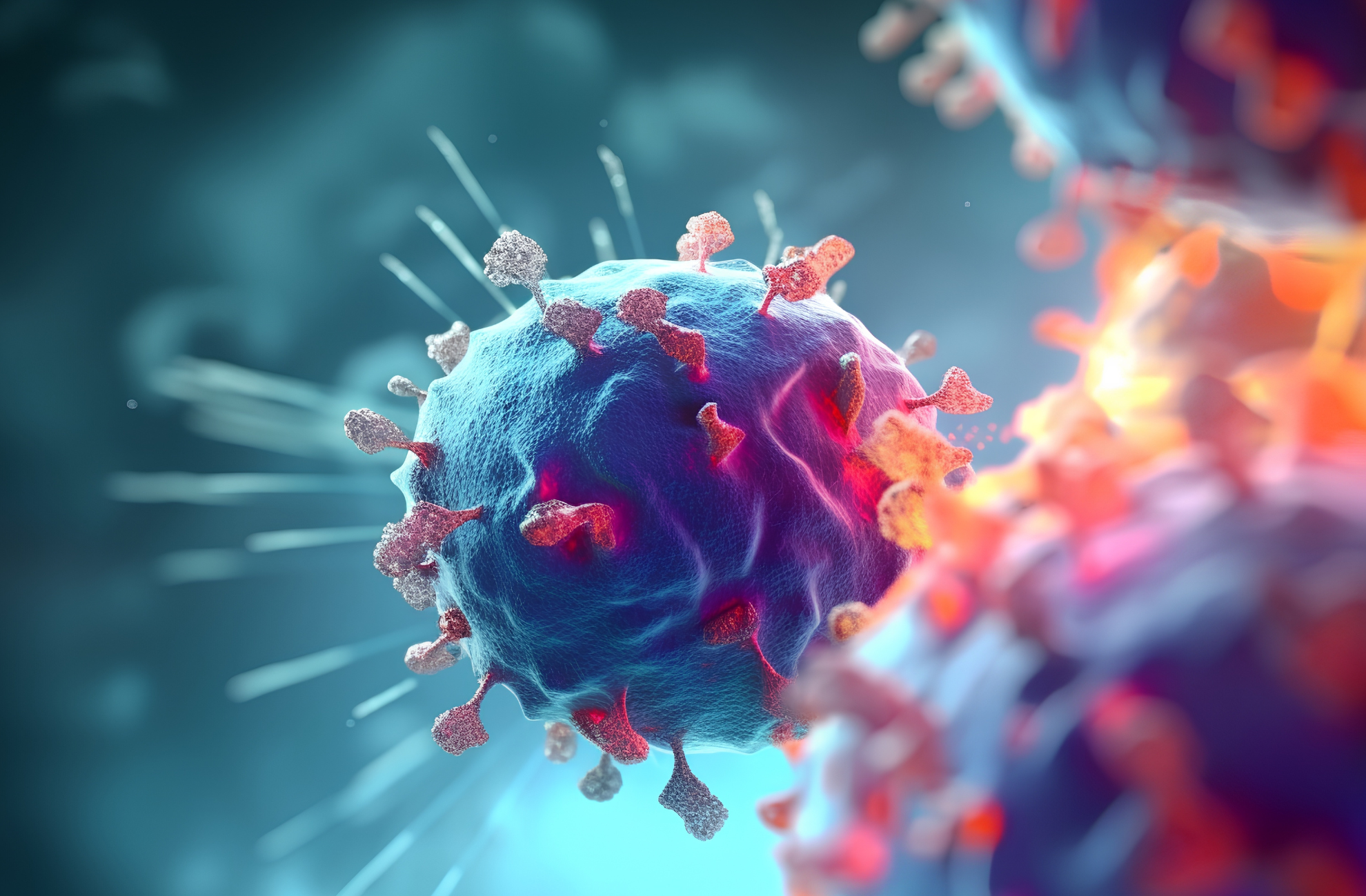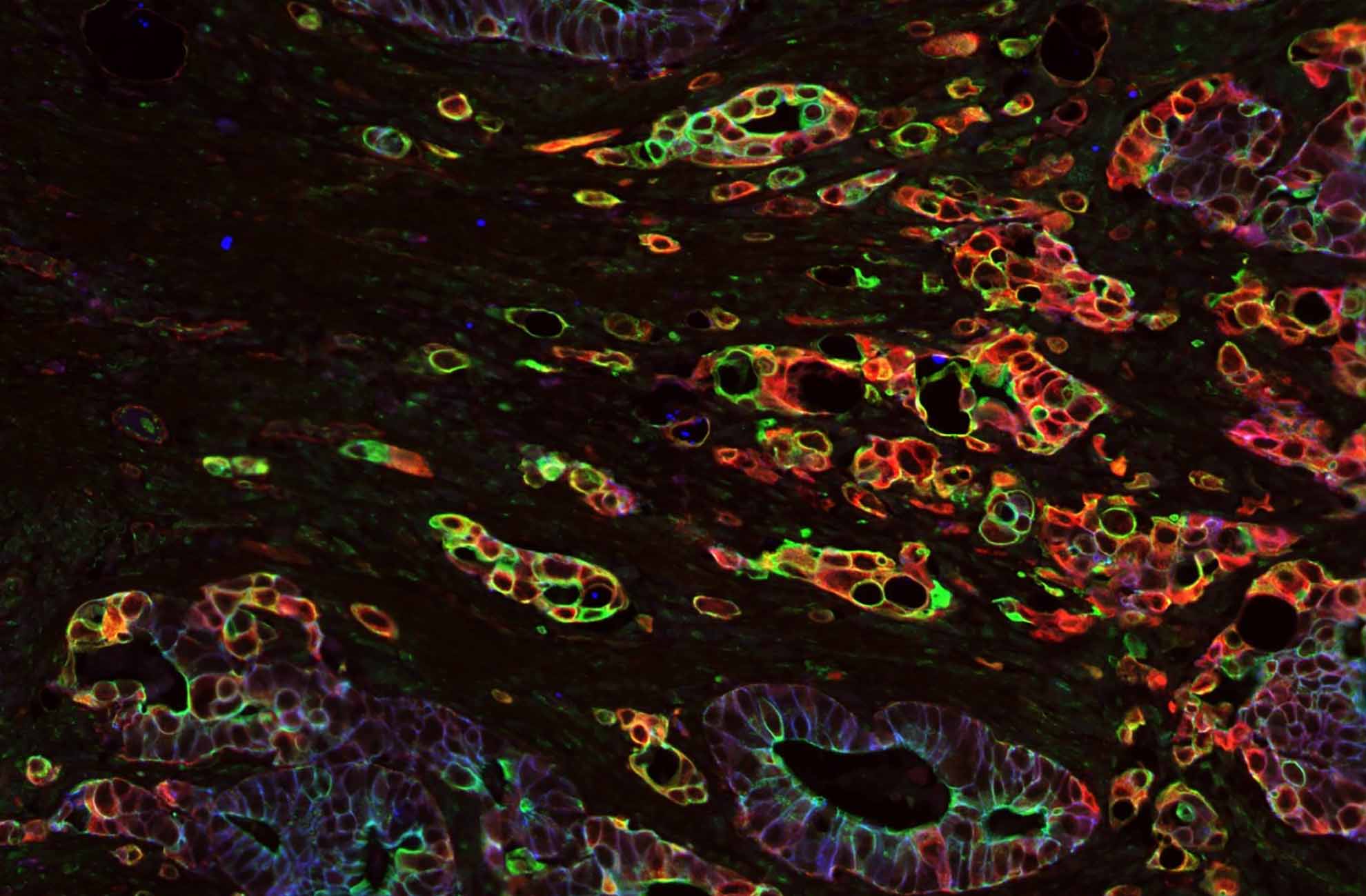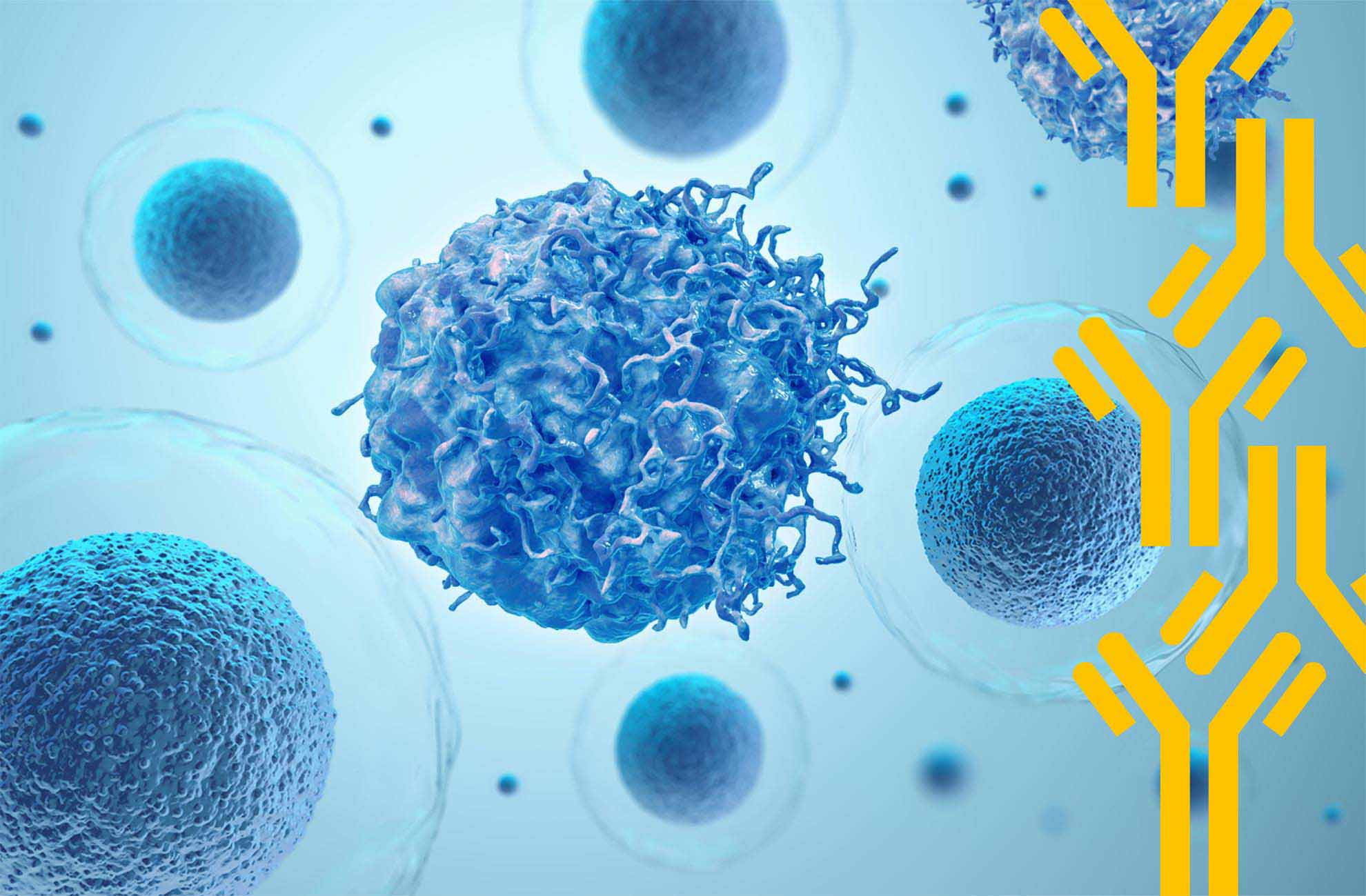Cancer research
The world population is rapidly growing and aging due to changes in fertility and life expectancy. As a result, the magnitude of cancer is increasing substantially, with over 20 million new cancer cases estimated for 2025 compared to approximately 14.1 million new cases in 2012 [ref.1]. Cancer is described as the transformation of normal cells into tumor cells. This can be caused by hereditary factors, but also by external influences, such as (UV) radiation, chemicals, smoking and excessive alcohol consumption. In addition, biological factors can also cause cancer, for example an infection with a virus, bacteria or parasite [ref. 2].
A bright future for cancer treatment thanks to research(ers)
Less than a generation ago, a cancer diagnosis was a “death sentence”. Due to numerous studies of devoted scientists in this field, the prognoses are improving. With all the advancements in genomic medicine and application in clinical practice, it is becoming possible to treat and personalize almost every aspect of the disease. The study of genes and mutations and how they contribute to the development, progression, and metastasis of cancer, is mapped using next-generation sequencing (NGS) technology. This accessible, reliable and affordable technique was introduced about 10 years ago and is still used and developed to this day all over the world [ref. 3]. Genomic oncology research leads to new understandings of this disease and contributes to identify novel targets for therapies [ref. 4].
Three-dimensional (3D) culture systems
To study any disease, researchers need convenient and relevant disease models. The most commonly used models are two-dimensional (2D) cell culture models of immortalized (tumor) cells and in vivo mouse models. The relation between cancer and immunology is very difficult to model, due to the complexity of the immune system. Therefore, three-dimensional culture systems provide an alternative, affordable and high-througput method to study cancer immunology and can fill the current gaps in available models. In addition, they offer more complex physiological environments as compared with 2D models. The most common 3D models include spheroids, organoids, and microfluidic chips [ref. 5].
Bio-Connect connects you with cancer research products
- Antibodies and antigens;
- Assays;
- Micro-arrays;
- Immunohistochemistry materials;
- Transfection reagents;
- Proteins and signaling molecules;
- (3D) Cell culturing products;
- … and more.
If you have any questions or if you are looking for certain products you can contact our technical support.

 Find products for your research
Find products for your research


